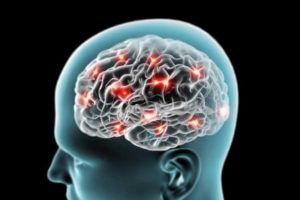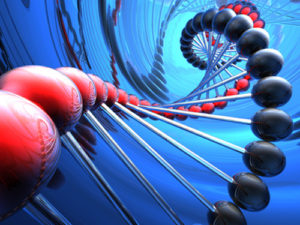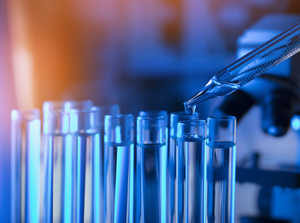Carotid Artery Disease Specimens
Bay Biosciences provides high quality, clinical grade bio-samples, cryogenically preserved atherosclerosis tissue, FFPE blocks with matched sera (serum), plasma and peripheral blood mononuclear cells (PBMC) biofluid specimens from patients diagnosed with Carotid Artery Disease.
The sera (serum), plasma and peripheral blood mononuclear cells (PBMC) biofluid samples are processed from patient’s peripheral whole-blood using customized collection and processing protocols. The Carotid Artery Disease bio-specimens are collected from unique patients diagnosed from Carotid Artery disease and are provided to a valued pharmaceutical customer for translational research, genomics, proteomics and biomarker research, drug discovery and development.
Carotid Artery Disease Overview
Carotid artery disease occurs when fatty deposits (plaques) clog the blood vessels that deliver blood to the brain and head (carotid arteries). The blockage increases the risk of stroke, a medical emergency that occurs when the blood supply to the brain is interrupted or seriously reduced. Stroke deprives the brain of oxygen. Within minutes, brain cells begin to die. In the United States Stroke is the most common cause of death and the leading cause of permanent disability.

Carotid Arteries
A Stroke can occur if:
- The artery becomes extremely narrowed
- There’s a rupture in an artery to the brain that has atherosclerosi
- A piece of plaque breaks off and travels to the smaller arteries of the brain
- A blood clot forms and obstructs a blood vessel
- Sudden bleeding in the spinal fluid space — subarachnoid hemorrhage
- Atrial Fibrillation
- Cardiomyopathy
- High Blood Pressure
- Blockage of tiny arteries inside the brain
Carotid artery disease develops slowly. The first signs when someone has the condition, there may be a stroke or transient ischemic attack (TIA), which is a temporary shortage of blood flow to your brain.
Carotid Artery Disease Symptoms
In its early stages, Carotid Artery disease often doesn’t produce any signs or symptoms. The condition may go unnoticed until it’s serious enough to deprive your brain of blood, causing a stroke or TIA.
Signs and symptoms of a stroke or TIA include:
- Sudden numbness or weakness in the face or limbs, often on only one side of the body
- Sudden trouble speaking and understanding
- Sudden trouble seeing in one or both eyes
- Sudden dizziness or loss of balance
- Sudden, severe headache with no known cause

Causes of Carotid Artery Disease
Carotid artery disease is caused by a buildup of plaques in arteries that deliver blood to the brain. Plaques are clumps of cholesterol, calcium, fibrous tissue and other cellular debris that gather at microscopic injury sites within the artery. This process is called atherosclerosis. Carotid arteries that are clogged with plaques are stiff and narrow. Clogged carotid arteries have trouble delivering oxygen and nutrients to vital brain structures that are responsible for the day-to-day functioning.
Carotid Artery Disease Risk Factors
Factors that increase the risk of getting Carotid Artery Disease include:
- High Blood Pressure- Excess pressure on artery walls can weaken them and make them more vulnerable to damage.
- Tobacco Use- Nicotine can irritate the inner lining of the arteries. Smoking also increases the heart rate and blood pressure.
- Diabetes- Diabetes lowers the ability to process fats efficiently, placing the patient at greater risk of high blood pressure and atherosclerosis.
- High blood-fat levels- High levels of low-density lipoprotein cholesterol and high levels of triglycerides, a blood fat, encourage the accumulation of plaques.
- Family history- The risk of Carotid Artery disease is higher if a relative has atherosclerosis or coronary artery disease.
- Age- Arteries become less flexible and more prone to injury with age.
- Obesity- Excess weight increases the chances of high blood pressure, atherosclerosis and diabetes.
- Sleep Apnea- Spells of stopping breathing at night may increase your risk of stroke.
- Lack of Exercise- It contributes to conditions that damage the arteries, including high blood pressure, diabetes and obesity.
Carotid Artery Disease Complications
Carotid Artery Disease causes about 10 to 20 percent of strokes. A stroke is a medical emergency that can leave a person with permanent brain damage and muscle weakness. In severe cases, a stroke can be fatal.
Carotid Artery Disease can lead to a Stroke through:
- Reduced Blood Flow- A Carotid artery may become so narrowed by atherosclerosis that not enough blood is able to reach portions of the brain.
- Ruptured Plaques- A piece of a plaque may break off and flow to smaller arteries in the brain. The plaque fragment may get stuck in one of these smaller arteries, creating a blockage that cuts off blood supply to part of the brain.
- Blood Clot Blockage- Some plaques are prone to cracking and forming irregular surfaces on the artery wall. Your body reacts as if to an injury and sends blood cells that help the clotting process to the area. The result can be a large clot that blocks or slows blood flow to the brain, causing a stroke.

Detailed clinical data, MRI scan, elevated biomarker levels, genetic and metabolic information, pathology annotations associated with the Carotid Artery Disease patient’s specimens is provided to a valued customer for drug discover, development and research. The Carotid Artery disease sera (serum), plasma and peripheral blood mononuclear cells (PBMC) biofluid samples are processed from patients peripheral whole-blood using customized collection and processing protocols provided by the researcher.
Bay Biosciences is a global leader in providing researchers with high quality, clinical grade, fully characterized human tissue samples, bio-specimens and human bio-fluid collections from cancer (tumor) tissue, cancer sera (serum), cancer plasma, cancer PBMC and human tissue samples from most other therapeutic areas and diseases.
Bay Biosciences maintains and manages it’s own bio-repository, human tissue bank (biobank) consisting of thousands of diseased samples (specimens) and from normal healthy donors available in all formats and types. Our biobank procures and stores fully consented, deidentified and institutional review boards (IRB) approved human tissue samples and matched controls.
All our human human tissue collections, human specimens and human bio-fluids are provided with detailed samples associated patient’s clinical data. This critical patient’s clinical data includes information relating to their past and current disease, treatment history, lifestyle choices, biomarkers and genetic information. Patient’s data is extremely valuable for researchers and is used to help identify new effective treatments (drug discovery & development) in oncology, other therapeutic areas and diseases. This clinical information is critical to demonstrate their impact, monitor the safety of medicines, testing & diagnostics, and generate new knowledge about the causes of disease and illness.
Bay Biosciences banks wide variety of human tissue samples and biological samples including cryogenically preserved -80°C, fresh, fresh frozen tissue samples, tumor tissue samples, FFPE’s, tissue slides, with matching human bio-fluids, whole blood and blood derived products such as serum, plasma and PBMC’s.
Bay Biosciences is a global leader in collecting and providing human tissue samples according to the researchers specified requirements and customized, tailor made collection protocols. Please contact us anytime to discuss your special research projects and customized human tissue sample requirements.
Bay Biosciences provides human tissue samples (human specimens) from diseased and normal healthy donors; including peripheral whole-blood, amniotic fluid, bronchoalveolar lavage fluid (BAL), sputum, pleural effusion, cerebrospinal fluid (CSF), serum (sera), plasma, peripheral blood mononuclear cells (PBMC’s), saliva, Buffy coat, urine, stool samples, aqueous humor, vitreous humor, kidney stones, renal calculi, nephrolithiasis, urolithiasis and other bodily fluids from most diseases including cancer. We can also procure most human bio-specimens and can do special collections and requests of human samples that are difficult to find. All our human tissue samples are procured through IRB approved clinical protocols and procedures.
In addition to the standard processing protocols Bay Biosciences can also provide human plasma, serum, PBMC bio-fluid samples using custom processing protocols, you can buy donor specific sample collections in higher volumes and specified sample aliquoting from us. Bay Biosciences also provides human samples from normal healthy donors, volunteers, for controls and clinical research, contact us Now.
日本のお客様は、ベイバイオサイエンスジャパンBay Biosciences Japan またはhttp://baybiosciences-jp.com/contact/までご連絡ください。


